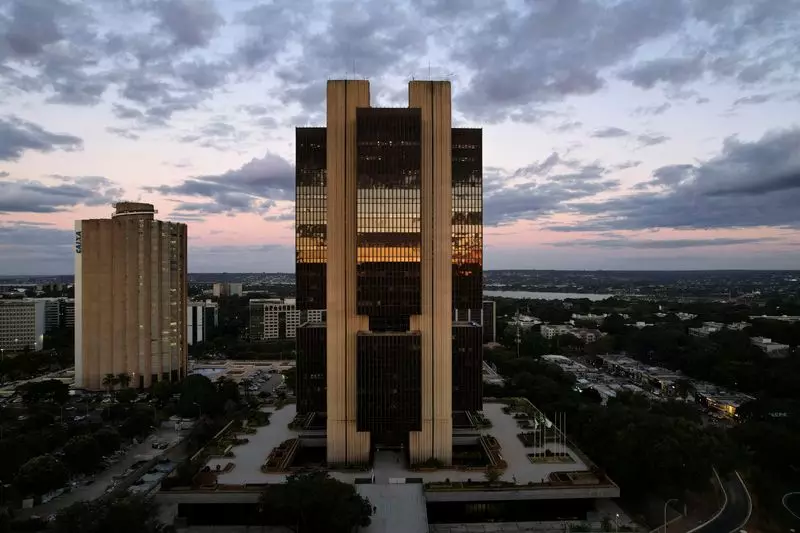The Brazilian real has been on a turbulent path recently, showcasing how political rhetoric and monetary policy can significantly impact a nation’s currency. Following a marked decline against the U.S. dollar, which saw the real drop by 1% in early trading on a recent Monday, President Luiz Inacio Lula da Silva’s remarks stirred mixed reactions in the financial markets. Lula’s characteristically leftist stance on interest rates has reignited the ongoing debate about their sustainability in the face of rising inflation rates, a discussion made even more pressing by the central bank’s recent actions.
Political Pressure and Market Reactions
In an interview broadcast on TV Globo, Lula criticized soaring interest rates as “irresponsible,” a statement that comes at a time when the Brazilian currency is among the weakest performers in emerging markets. The central bank’s efforts to control inflation through interest rate hikes seem to be drawing fire from Lula, who promised that his administration would take charge of the situation, potentially hinting at imminent policy changes. The bullish sentiment among investors, evident from the initial panic sell-off, quickly faded when the central bank intervened by selling a significant amount of dollars to stabilize the market. This duality highlights the dynamic relationship between governmental statements and market actions, emphasizing how political discourse can shift investor confidence dramatically.
Central Bank Interventions: A Temporary Fix?
The Brazilian central bank executed a spot dollar auction worth over $1.6 billion after markets reacted negatively to Lula’s comments, attempting to bolster the faltering currency. Despite these interventions—which may seem to address the problem temporarily—the trend suggests a more systemic issue with the Brazilian economy and its approach to monetary policy. The broader struggle is apparent as the Brazilian economy grapples with a nearly 20% loss of its currency value this year, a situation bringing fears of economic instability to the forefront. Lula’s appointment of a new central bank governor next year, who will be more aligned with his economic policies, could further exacerbate these concerns as the market adapts to a potential shift in monetary strategy.
Inflation Concerns: A Complex Scenario
Compounding the uncertainty surrounding the Brazilian real are inflation factors that raise questions about the efficacy of previous rate hikes. Current inflation figures have crept up to 4.87%, surpassing the central bank’s target range, which adds a layer of complexity to the scenario. Lula’s declarations post-hospitalization—from health issues to aggressive fiscal positioning—evoke a sense of urgency while also defining the contours of his government’s intervention strategy. The hawkish stance of the central bank, characterized by a 100-basis-point hike to 12.25%, appears to be under scrutiny with the Federal Reserve’s stricter approach to controlling inflation.
With Lula’s appointees set to gain a majority on the central bank’s board, there is heightened speculation on how this shift will redefine monetary policy. The changing landscape could lead to a divergence from previous strategies that prioritized aggressive tightening measures. Early forecasts suggest that interest rates may peak as high as 14.25% by early next year, a prospect that obliges the bank to consider how to balance inflation control with the need to stabilize the currency. Amid this backdrop, growing inflation expectations have economists worried, indicating that the trajectory of Brazil’s economic policies will likely dominate headlines for the foreseeable future.
The road ahead for the Lula administration is fraught with challenges that demand strategic maneuvering to restore confidence in Brazil’s economy. Addressing inflation while moderating interest rates will require a nuanced balance, necessitating not only monetary tools but also fiscal discipline. As Lula continues to navigate the political ramifications of his policies, the market will be watching closely, assessing the long-term viability of the Brazilian real and the implications for broader economic stability. The coming months will be pivotal, as they will not only test Lula’s credibility but also significantly influence Brazil’s economic future.

